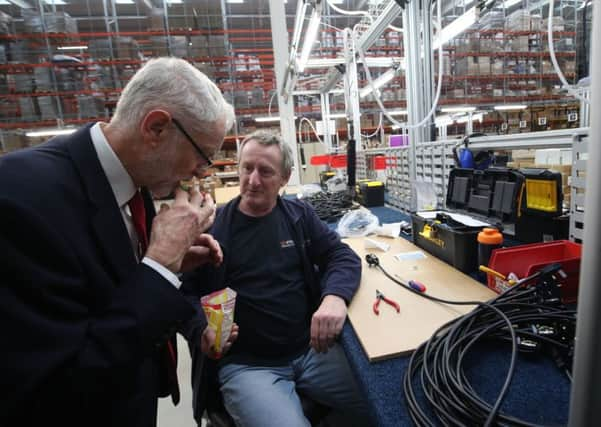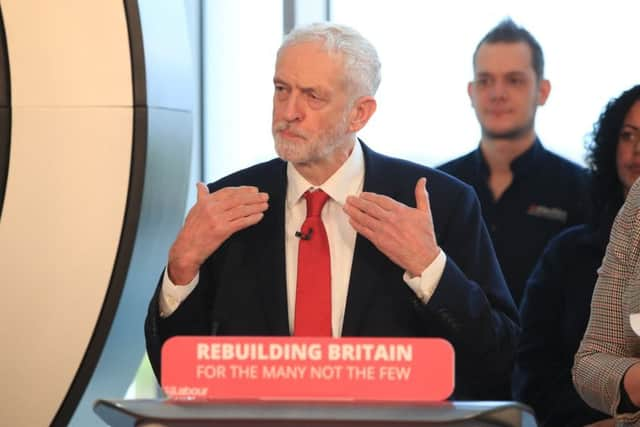The Yorkshire Post says: Brexit masks Labour's splits '“ Jeremy Corbyn's election opportunism


Yet they are also emblematic of the national divide. Two-thirds of voters in Wakefield backed Leave in the 2016 referendum – even though Mary Creagh, the city’s Labour MP, is a staunch Remainer who increased her own majority at the 2017 election.
Advertisement
Hide AdAdvertisement
Hide AdMeanwhile the electorate in Pudsey voted narrowly to stay in the EU despite Tory MP Stuart Andrew, now a junior Defence Minister, backing Brexit. His majority was cut to 331 votes and Labour has selected a Corbynite candidate from the far-left to trip and topple him.


Just how does Mr Corbyn intend to reconcile these differences if he chooses to table a vote of no confidence in Theresa May’s government – he says he is still undecided on the timing of such a move – and forces an election that he then wins?
Voters were certainly left none the wiser following the Labour leader’s speech in Wakefield and Mr Corbyn was asked by a businessman to spell out his opposition to Mrs May’s deal. It would not guarantee future trade investment, he said, before trying – and failing – to play down Shadow Cabinet splits over tactics and a possible extension to Article 50.
And this is the point. An election is likely to replace one set of differences with another because the Tory turmoil masks the fact that Labour, too, is divided over Brexit and that a small number of its MPs did, in fact, vote with the Government this week while others are trying to seek common ground on safeguards for workers’ rights and so on.
If Mr Corbyn did likewise, rather than opposing for opposition’s sake, he might, in turn, find it easier to build the groundswell of support that he needs if he is to ever lead this country.